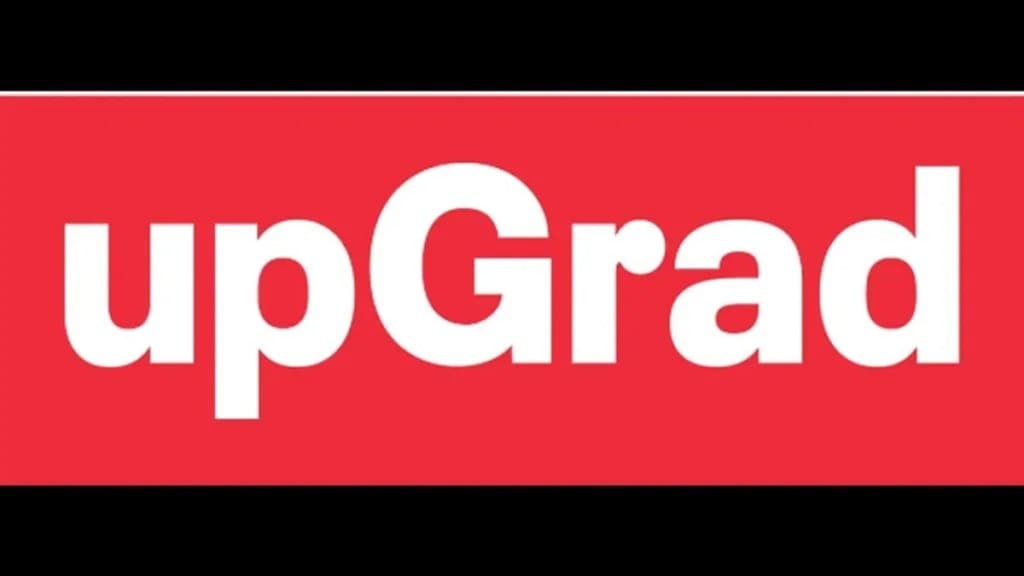“There was no eureka moment,” Ronnie Screwvala, media mogul and co-founder of upGrad says, as he recalls the starting days of upGrad. The idea of launching an online higher education platform that focuses on upskilling was a result of his non-profit work in the education sector since the 1990s. “Especially for me, in my second innings, it was to validate what I could do for the next 20 years,” he says.
For Screwvala, it was not about reacting to a trend, but about creating a long-term impact through lifelong learning. “So, no dramatic spark. It was just a steady, evolving vision that germinated from years of exploration and insight,” he says. As he worked with youth in rural India for the non-profit, which was officially launched as Swades Foundation (a name he derived from his Shah Rukh Khan starrer Swades) after divesting UTV to Disney in 2012, he met around 300 people who helped him understand the sector better. They were the sounding board on what it would take to disrupt the sector. Mayank Kumar, co-founder, upGrad was one of them.
Growing up in a small town, Kumar, 42, relied on distance learning for his education, which included receiving books, studying remotely, and calling in for clarifications. That experience showed him the power of education beyond physical boundaries, he tells us. He also got into IIT Delhi in 2001. But, years later, he struggled to find something truly meaningful — and couldn’t be an armchair critic. That’s when the idea of upGrad took shape for him—to bridge the gap between education and employability at scale.
“India produces millions of graduates, but not enough are employable. Not everyone has access to top institutions, and many feel dissatisfied with their education. This remains one of the country’s biggest challenges. Our journey has been about solving this fundamental problem — making quality education accessible, outcome-driven, and future-ready,” Kumar says.
Unlike Kumar, Screwvala has lived in Mumbai throughout and hails from a lower-middle-class Parsi household. Till grade 7, he studied at Dunnes Institute, which he says taught him to be grounded. In grade 8, he moved to Cathedral and John Connon School. “I did well in school and came out as an arrogant boy. I walked into Sydenham College to do my B.Com. I was quite unambitious even at that time, but failed in the first year in college,” he says. He did complete his B.Com, but chose not to study further as entrepreneurship beckoned. “I was clear at a young age that I was not going to be good at working for and building someone else’s vision. I think my flunking in college for a year also was a wake-up call on what I wanted to do in life,” Screwvala says.
While the purpose was the same for Screwvala and Kumar, the connection between them wasn’t instant. It took several interactions to build that. Eventually, Screwvala sensed Kumar wanted to do more. “I asked him if he was ready to build something with me. I told him I only needed five minutes to decide; he took a trip to Japan to think and came back ready to say yes,” he says.
Long before this meeting, Kumar had also reached out and convinced his former colleague at the Parthenon Group, Phalgun Kompalli, co-founder, upGrad, who is also an IIT Delhi alumnus, to build something meaningful together. “I was initially sceptical, but his persistence led to months of deep discussions, and eventually, upGrad took shape,” Kompalli recalls.
The idea went through many iterations and what they thought would take 3–6 months, took a year. They had to crack everything—from the course structure and tech platform to the learning experience. The first five years were foundational. “We often say we are a five-year-old company that was founded ten years ago,” Screwvala says. But unlike other startup founders, Screwvala and Kumar didn’t rely on standard TAM (target addressable market) numbers.
Instead, he and Kumar met hundreds of educators, professors and principals to understand the space. “We were clear that we weren’t entering an existing market. We were going to create one. Because I wanted to deeply understand how the education system worked and what gaps we could address. That groundwork gave me the clarity to define upGrad’s purpose,” he says.
upGrad was launched in March 2015, first with an online entrepreneurship programme that saw over 300,000 learners opting for it. Between 2015 and 2019, the firm’s first set of courses catered to the working professionals, covering everything from data science and analytics to product management, digital marketing, and the early days of machine learning. In this period, the firm enrolled over 250,000 learners globally.
The founders didn’t raise external capital in the first six years of upGrad. “While most/all in the sector grew only proportionate to the funding gold rush, we invested our own capital, building frugally, which gave us the flexibility to shape our vision,” Screwvala says. upGrad’s first office was a small meeting room, a six-seater, in an office Screwvala had after divesting UTV to Disney, which also housed Swades Foundation, Unilazer and RSVP.
Today, the startup, headquartered in Mumbai, has operations across more than 15 countries and has over 4,000 employees. It offers over 300 courses cumulatively, with fees ranging from Rs 10,000 to Rs 18 lakh and has so far catered to more than 10 million learners globally. As per its non-IndAS financials, the company reported a revenue of Rs 1,600 crore and a negative Ebitda of approximately Rs 200 crore in FY24.
“The biggest challenge was building a market from scratch. But we didn’t see obstacles as problems. Every hurdle was an opportunity to innovate. That mindset helped us move forward with conviction instead of doubt,” Screwvala says.

